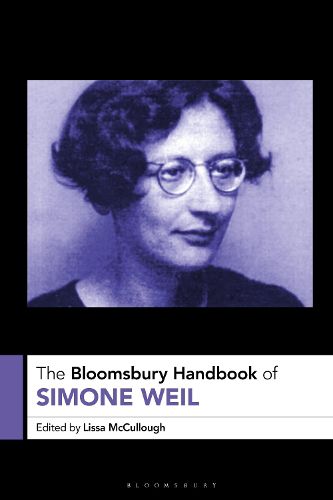Readings Newsletter
Become a Readings Member to make your shopping experience even easier.
Sign in or sign up for free!
You’re not far away from qualifying for FREE standard shipping within Australia
You’ve qualified for FREE standard shipping within Australia
The cart is loading…






Exploring the philosophical writings of Simone Weil, this extensive work documents the key thinkers who influenced her political, philosophical and religious outlook. It also offers a critical analysis of her wide-ranging philosophical concepts through incisive and insightful essays, revealing how they connect throughout her writings to form an organic whole.
Part I explores Weil's boundary-crossing interests in radical politics, science, mathematics, history, and religious phenomena. Part II traces the intellectual history of Weil's own writings by mapping her most important philosophical influences including Plato, Descartes, Spinoza, Rousseau, Kant, and Marx. Part III turns to the distinctive terms that tie Weil's body of thinking together: terms such as amor fati, attention, beauty, force, gravity and grace, receive full explication alongside important themes of justice, obedience, compassion, and method as they figure in her work.
The Bloomsbury Handbook of Simone Weil provides readers with clarifying and comprehensive coverage of Weil's ideas and writings, leading the reader through her expansive oeuvre alongside an overview of the critical literature.
$9.00 standard shipping within Australia
FREE standard shipping within Australia for orders over $100.00
Express & International shipping calculated at checkout
Stock availability can be subject to change without notice. We recommend calling the shop or contacting our online team to check availability of low stock items. Please see our Shopping Online page for more details.
Exploring the philosophical writings of Simone Weil, this extensive work documents the key thinkers who influenced her political, philosophical and religious outlook. It also offers a critical analysis of her wide-ranging philosophical concepts through incisive and insightful essays, revealing how they connect throughout her writings to form an organic whole.
Part I explores Weil's boundary-crossing interests in radical politics, science, mathematics, history, and religious phenomena. Part II traces the intellectual history of Weil's own writings by mapping her most important philosophical influences including Plato, Descartes, Spinoza, Rousseau, Kant, and Marx. Part III turns to the distinctive terms that tie Weil's body of thinking together: terms such as amor fati, attention, beauty, force, gravity and grace, receive full explication alongside important themes of justice, obedience, compassion, and method as they figure in her work.
The Bloomsbury Handbook of Simone Weil provides readers with clarifying and comprehensive coverage of Weil's ideas and writings, leading the reader through her expansive oeuvre alongside an overview of the critical literature.